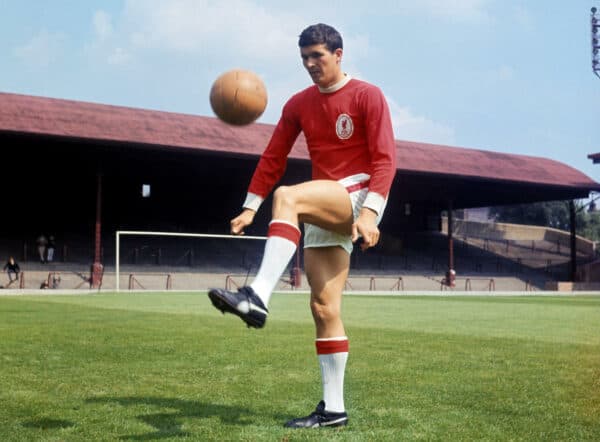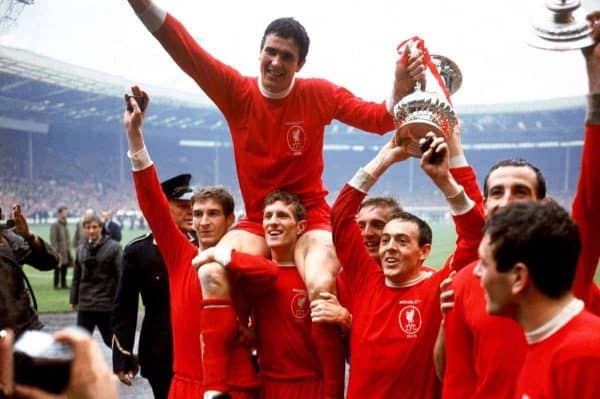[ad_1]
Legendary Liverpool captain Ron Yeats has died aged 86 after dealing with Alzheimer’s in recent years.
Yeats passed away on Friday night and Liverpool have announced that flags across club sites will be lowered to half-mast on Saturday as a mark of respect.
The club also said: “The thoughts of everyone at LFC are with Ron’s wife, Ann, all of his family and his friends at this incredibly sad time.”
Yeats signed for Liverpool from Dundee United in 1961 and was a key man in Bill Shankly‘s revolution that took the Reds from the second division almost to the top of European football.


Such was Yeats’ instant impact on the team in defence, he was made captain within months and first wore the armband on Boxing Day, 1961, against Rotherham.
By 1964, Liverpool were champions of the first division and ready to play in Europe.
The following season, Yeats played every minute in the Reds’ run to the European Cup semi-finals, where they beat Internazionale on a memorable night at Anfield before losing the second leg in controversial circumstances.
A week earlier, however, came one of Liverpool’s most historic days when they won their first-ever FA Cup, beating Leeds 2-1 in the final.
Yeats was the man to proudly lift the trophy at Wembley before returning to the balcony of Liverpool Town Hall to show off the silverware to over 250,000 adoring fans in the city centre.


As a 6’2″ centre-half, Yeats was integral to the club throughout the 1960s as he and his manager helped build the Liverpool we know today.
Shankly famously said of Yeats: “Walk around him. He’s a colossus.”
Despite his height and presence, Yeats was known as a down-to-earth, friendly man, showcased once when he told the Queen as he went to receive the FA Cup, “I’m absolutely knackered!”
Such is Yeats’ significance in the history of Liverpool, we can even thank him in part for the kit the team wears today.
Until 1964, Liverpool wore white shorts. Fellow Scot and teammate Ian St John recalled in his autobiography how “Shankly thought the (new) colour scheme would carry psychological impact – red for danger, red for power.
“He came into the dressing room one day and threw a pair of red shorts to Ronnie Yeats. ‘Get into those shorts and let’s see how you look,’ he said.
“‘Christ, Ronnie, you look awesome, terrifying. You look 7ft tall’.”
That is just one of several stories telling of how deeply ingrained Yeats is into Liverpool’s history. He will be forever remembered as a superb centre-half and perhaps the first great captain of this football club we love.
Rest in peace, Ron Yeats.
[ad_2]











